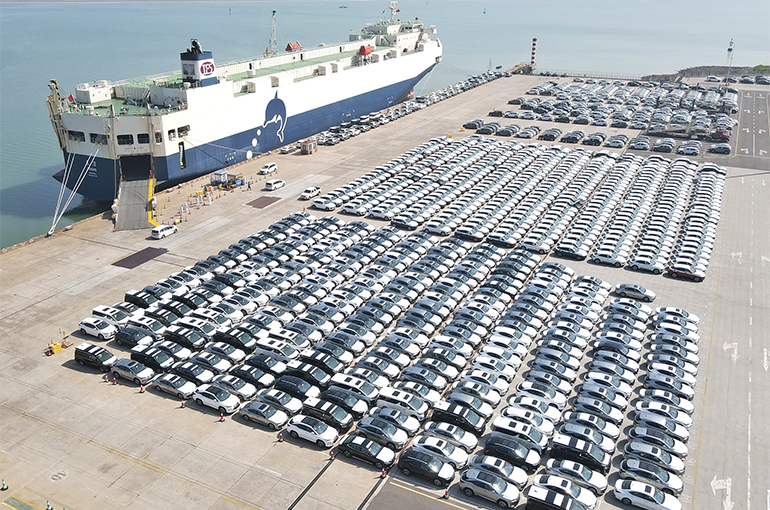 China’s Auto Imports Hit 10-Year Low on Localized Production, NEV Market Growth
China’s Auto Imports Hit 10-Year Low on Localized Production, NEV Market Growth(Yicai) Feb. 6 -- China's car imports fell to the lowest in a decade last year amid a global shortage of auto chips, increasing local production by foreign carmakers, and the country’s burgeoning market for new energy vehicles.
China imported 799,000 vehicles last year, down 9 percent from the year before, according to the latest data from the China Passenger Car Association. By value, imports fell 6 percent to CNY332.13 billion (USD46.2 billion).
Some foreign luxury brands have started producing models such as the BMW X5 in China so as to reduce the price. This localized production has cannibalized imports, as sales of imported BMWs dropped by 11 percent and those of Mini-branded cars slid by 36 percent.
China’s auto imports have been falling by an average 10 percent a year since 2017, when the number shipped in was 1.2 million. Last year, only Audi achieved an increase among the top five brands. Lexus was the No. 1 bestseller, though its sales fell 1 percent.
The rapid growth of China’s NEV market in recent years, spurred by tax breaks and government subsidies, has prompted a shift in consumer preferences away from traditional fuel-powered cars, contributing to the pressure on imports of such vehicles made by overseas automakers. Wholesale NEV sales jumped 36 percent in 2023, according to the CPCA.
“The rapid development of the NEV market has, to some extent, squeezed the market space for imported car brands, and there is a lack of new products in the imported car market,” CPCA Secretary-General Cui Dongshu said.
He expects the decline in imports to continue this year, making a return to the era when one million or more cars were brought in difficult.
An increasing share of the vehicles being shipped are luxury models. Last year, about 90 percent were luxury models, up from 77 percent in 2017, and ultra-luxury models also increased their share somewhat, Cui said.
But the sales of several ultra-luxury marques fell. Porsche sold 15 percent fewer cars in China last year. Bentley sold 18 percent less, while Lamborghini’s sales declined 17 percent and Ferrari’s 5 percent.
Editor: Emmi Laine